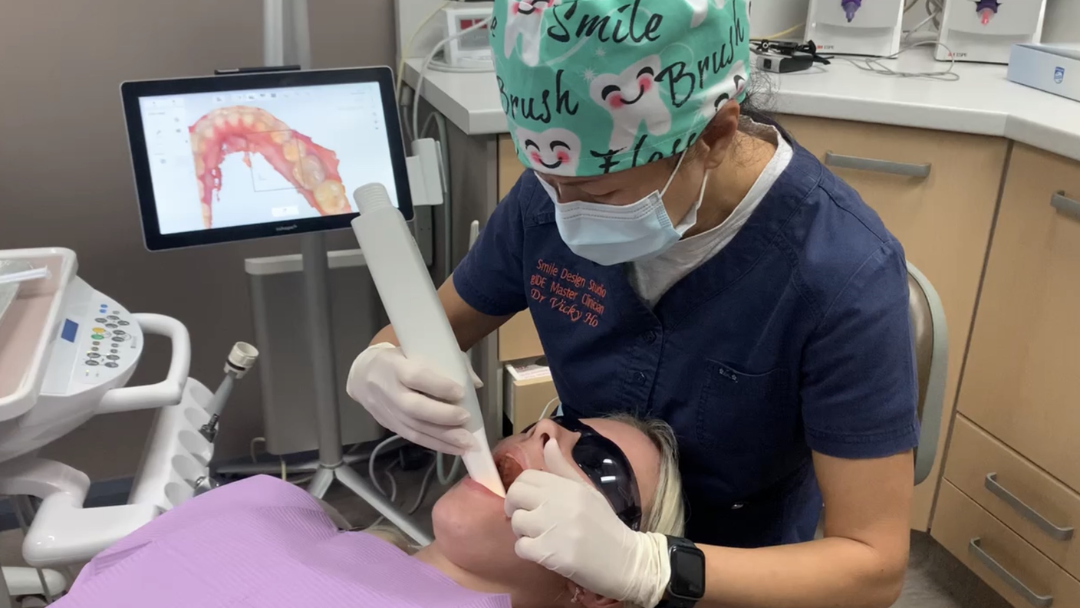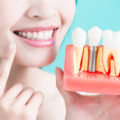All on 4 implants and individual tooth implants are two popular options when it comes to restoring your smile. But what’s the difference between them, and how do you know which one is best for you? In this article, we’ll explore both types of implants and their key differences so that you can make an informed decision about which option is most suitable for your needs.
When it comes to dental implants, many people don’t realize that there are multiple different kinds available — each with its own set of pros and cons. All on 4 implants offer a great solution for those who need more than one tooth replaced in the same area, while individual tooth implants might be better suited if you’re only missing a single tooth. It’s important to become familiar with the differences between these two types of implants before making any choices about treatment.
We will look at all on 4 implants vs individual tooth implants and compare their advantages and disadvantages so that you can decide which option to choose based on your particular situation. Get ready to learn all about the differences between these two types of dental treatments!
Overview Of Implants
Dental implants are a popular and permanent solution for replacing missing teeth. Traditional implants involve surgically implanting a metal post into the jawbone, which is then used to support an artificial tooth or bridge. All on four implants provide an alternative option involving fewer posts. This procedure involves placing only four titanium posts in strategic locations around the mouth that can hold an entire arch of replacement teeth.
Both traditional dental implants and all on four implants offer stability and durability when it comes to restoring smiles ruined by tooth loss. They also help prevent bone loss by providing stimulation to the jawbone similar to natural teeth roots. Both procedures have advantages and disadvantages depending on individual needs, but they both require surgery and typically more than one appointment with a dentist or oral surgeon.
Traditional Implants Vs All On 4s
Traditional dental implant surgery involves a single implant procedure for each missing tooth. It is completed in two stages: first the titanium post is placed into the jawbone, followed by a healing period before the porcelain crown that looks like your natural teeth can be attached to it.
There are several advantages associated with traditional implants such as:
- The restoration mimics the look of your own tooth
- It is an effective option for replacing one or few teeth
- They provide greater stability than other options
- The surrounding tissue is not disturbed during placement
On the other hand, All-on-4 dental implants offer many benefits over traditional implants. This procedure requires only four posts per arch which makes it much shorter than individual tooth replacement. Additionally, All-on-4 dental implants require fewer visits to complete compared to traditional implant procedures.
Here are some additional benefits of this type of treatment:
- Less invasive than multiple individual dental implants
- Faster recovery time
- More cost effective when replacing all teeth in arch
- Preserves more jawbone structure
Overall, both types of implants have their merits; however, depending on what you need done, one may be better suited to you than the other. The best way to determine which route is right for you is by consulting with your dentist who can assess your particular situation and make an informed recommendation.
Requirements For Implants
Before deciding on either All-on-4 dental implants or individual tooth implants, it is important to understand what you need to be a candidate.
The jawbone must be of a certain density and health in order for any implant option to work properly. If bone has been lost due to gum disease, smoking or other reasons, then an additional procedure may need to be done first. This could include a bone graft to strengthen bone structure before proceeding with any type of implant.
The healing process varies depending on which implant option is chosen. All-on-four implants typically take less time because only one surgery needs to be completed as opposed to multiple surgeries for individual tooth implants; however, each case will vary based on the patient’s situation. Additionally, aftercare instructions should be followed closely so that the implanted teeth can last many years without needing replacement.
Dental professionals can help determine which implant solution fits your lifestyle best and guide you through every step of the way during your treatment plan. It is important to research and ask questions about both options available when considering an oral reconstruction procedure such as dental implants.
Benefits Of All On 4s
The All on 4 implant system can provide significant benefits over individual dental implants. With the All on 4 procedure, four additional implants are added to a patient’s jawbone to support an arch of dentures. This eliminates the need for multiple individual implants, which would be required in order to secure a full set of dentures. The fewer number of implants reduces overall cost and recovery time while allowing patients to enjoy those same dental implant benefits such as improved speech and eating ability.
Plus, due to the design of the All on 4 system, it is possible to place these four additional implants even if there is limited bone available in certain areas of the mouth. That means that this treatment option will still be viable for many people who may not have been able to receive traditional individual dental implants before. In short, the All on 4 offers a great solution when it comes to restoring missing teeth with secure and long-lasting results.
What To Expect With An All On 4 Procedure
This implant technique involves placing four titanium posts in strategic locations of the jawbone. The condition of the existing jawbone will affect where the posts are placed, as well as how long recovery takes after surgery. After placement, patients should anticipate some restrictions on their diet for a few days while they heal from surgery. Depending on each patient’s unique needs, additional dental appliances may be used to provide extra support during healing and eating.
The day following surgery, patients can typically transition back into their regular diet with no issue; however soft foods are still recommended for at least two weeks post-op. Additionally, dentists often recommend avoiding hard or sticky snacks like nuts and candy bars until full healing has taken place – usually around six months post-surgery.
Advantages Of Individual Tooth Implants
Individual tooth implants offer many advantages over all-on-4 implant treatment. These include greater precision and accuracy, as well as a more natural looking result than an all-on-4 implant procedure can provide. In addition, individual tooth implants are usually less invasive than their all-on-4 counterparts, meaning that patients can often recover faster from the implant treatment.
The greatest advantage of individual tooth implants is that they allow for restoration of a single missing tooth with minimal disruption to other surrounding teeth. This means that neighboring teeth don’t need to be altered or removed in order to place the new artificial tooth into its correct position like it would with an all-on 4 implant procedure. Furthermore, because no alteration is required on existing healthy teeth, this makes the overall outcome much more similar to a natural tooth.
Disadvantages Of Individual Tooth Implants
However, individual tooth implants can also have a few drawbacks. Firstly, they may not be ideal for patients who need to replace multiple teeth and could benefit from an all-on-four implant solution instead of having each tooth replaced individually. This is because conventional dentures require more maintenance than the all-on-four option which offers a permanent restoration without the need for daily cleaning and removal.
Another disadvantage of individual dental implants is that they are not suitable for those with inadequate jawbone density or volume as it would affect their ability to support the implant fixture. Additionally, food particles may become trapped in between individual implants making them harder to clean when compared to an all-on-four implant bridge. Therefore, individuals should consult with their dentist before deciding on any type of procedure so that they can determine which one best suits their needs and lifestyle habits.
Jawbone Density Requirements
Jawbone density is an important factor to consider when evaluating a patient for implant treatment. If the jawbone isn’t dense enough, it could lead to complications during or after the procedure and may result in implant failure.
When considering all on 4 implants versus individual tooth implants, jawbone density requirements vary slightly due to the different types of treatments involved.
The following points detail various jawbone density scenarios:
All On 4 Implants:
- Jawbone that has suffered significant loss due to disease or trauma can be augmented with bone grafting prior to placing all on 4 implants. The additional bone often provides more stability and strength than what was previously present in the jaw, allowing for better success rates with this type of implant treatment.
- In cases where minimal augmentation is required, lower levels of denser bones may be used without any extra procedures needed. However, if there is too much resorption (the process whereby bones break down over time) then further augmentation will need to be done before proceeding with all on 4 implants.
Individual Tooth Implants:
- For individual tooth replacement, sufficient amounts of dense jawbone are necessary as each implant needs its own foundation in order to remain secure and stable within your mouth. This means that more healthy and intact tissue must be available compared to all on four cases where multiple teeth are being replaced at once.
- Augmenting tissues that have been compromised by periodontal diseases or other health conditions should also take place prior to treatment if possible, as this will help ensure the best results from receiving a permanent denture using single-tooth implants instead of opting for full arch bridges or dentures supported by mini dental implants.
When determining which type of implant treatment would be best suited for a particular patient’s situation, their existing level of jawbone density should always be taken into consideration first and foremost in order to maximize success rates while minimizing risks associated with either option. It’s important for patients seeking out any kind of dental implant procedure to understand these differences so they can make an informed decision regarding their oral health care options moving forward.
Timeline For Healing And Restoration Procedures
The healing process and treatment time for all on four dental implants is much different from that of individual tooth implants. The timeline for each type of implant depends heavily on the individual’s oral health, overall health, and any complications that may arise during surgery or recovery.
When it comes to a long-term solution for tooth replacement, both options are viable:
All on four implants:
- Surgery typically takes 2-3 hours under general anesthesia
- Healing periods vary but can be up to 6 months
- Permanent restoration follows the initial healing period
Individual Tooth Implants:
- Surgery typically takes 1 hour per implant under local anesthesia
- Healing period can take 4 – 6 weeks
- Restoration usually begins after 12 days with fully healed gums
In either case, patients should expect some swelling and discomfort afterwards as part of the natural healing process. Patients should also plan to follow up with their dentists regularly to monitor progress and ensure proper care throughout the entire procedure.
Professional Care And Maintenance
When considering the differences between all on 4 implants and individual tooth implants, one should also consider their respective care and maintenance. Both types of dental implants require professional care to ensure long-term success, including regular checkups, cleanings, and x-rays.
However, there are some subtle yet important distinctions in implant upkeep:
All on 4 Implants:
- Require a thorough evaluation at least twice per year
- May necessitate occasional adjustments or replacements due to natural wear and tear
- Are susceptible to gum disease if not properly maintained
Individual Tooth Implants:
- Need an initial lengthy healing process before they can be used as normal teeth
- Must be monitored for any signs of infection during the recovery period
- Necessitates diligent oral hygiene practices such as daily brushing and flossing
It is essential that both options receive adequate attention when it comes to proper dental health. Regular visits with a trusted dentist will help identify potential issues early on and guarantee your new smile lasts for years to come.
Impact On Quality Of Life
The difference between all on 4 implants and individual tooth implants has a significant impact on the quality of life for those who receive them. All on 4 implants remove the need for bone grafting, as they are secured to existing jawbone density by four titanium posts. The placement of these posts is designed to provide optimal dental support and oral health.
Individual tooth implants also require existing jawbone density in order to be effective, but because each implant requires its own post, this can lead to more invasive surgeries or create an uneven distribution of pressure throughout the mouth. This can cause further stress or damage to other teeth and adversely affect quality of life.
Conclusion
In conclusion, implants can be a great way to improve the quality of life for those who have lost teeth due to injury or disease. Traditional individual tooth implants and All on 4s are both viable options depending on your needs and preferences; however, if you’re looking for an easier and more efficient solution, All on 4s may be the right choice for you. Before getting any type of dental implant, it’s important to discuss the procedure with a qualified specialist in order to ensure that all requirements are met. After placement, following food restrictions is essential during the healing process so that your new smile lasts as long as possible. With proper professional care and maintenance, you’ll enjoy a beautiful set of teeth once again!
No matter which option you choose, our team of experienced professionals will work with you to create a personalized treatment plan to meet your unique needs and goals. Don’t let missing teeth hold you back from smiling with confidence. Contact us here at Smile Design Studio today to learn more about our implant options and schedule a consultation with our team.









